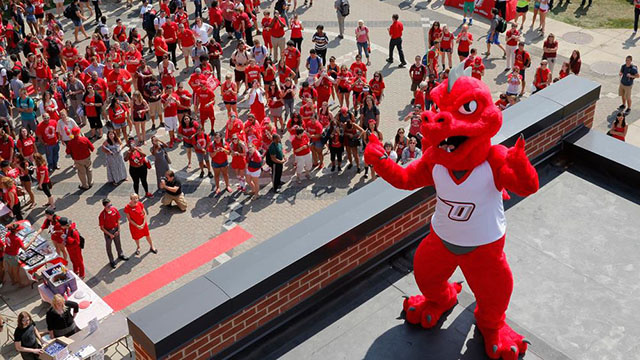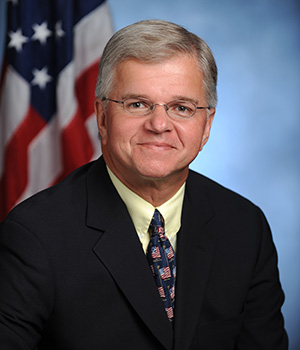Assemblyman Fred Thiele announced that he helped pass the Assembly’s 2017-18 state budget proposal. The proposal invests in vital programs and services for hardworking families. The Assembly has observed the many challenges of 2016 and hopes to improve the lives of New York families in the 2017 year and years to follow, making their goal to move New York forward.
The plan is to provide a total of $26.3 billion in education funding which is an overall increase of $1.8 billion or 7.4 percent from last year. The Assembly Majority believes the Foundation Aid formula is too important in ensuring that resources are directed in the most fair and equitable manner. The formula has been readjusted to ensure that it accurately reflects the cost of educating a child in New York and the number of children living in poverty. There is a strong commitment in the remaining Foundation Aid over the course of four years, while adjusting and updating the formula to ensure fairness and equality. Foundation Aid would be increased by $1.4 billion for the 2017-18 school year for a total of $17.8 billion, which is $1 billion more than the executive plan. This plan distinguished Community Schools Aid as an independent category to ensure Foundation Aid and Community Schools each receive adequate funding.
The Assembly budget proposal increases funding for the Tuition Assistance Program (TAP) and the maximum award would be raised to $5,500 per year, a $335 increase, and then increased to $6,500 over a four-year period. A total of $40 million will be allocated for Part-time TAP at community colleges across New York State. This increase and award will allow students with family and other obligations to attend college on their own schedule.
In addition, the Assembly will improve the executive’s proposed Excelsior Scholarship program to provide free college tuition to more middle-class families. The plan provides free SUNY and CUNY tuition to families earning up the $125,000 per year. The Assembly’s overall changes would allow students to take 12 credits for two semesters as opposed to the current requirement of 15 credits per semester, reset the tuition that Excelsior pays every four years to keep up with rising tuition costs, better accommodates special needs students, and raise the maximum income level to qualify to $150,000 in the fourth year of the program.
“We must do everything we can to ensure SUNY schools are fully funded so they can offer an affordable college education and challenging learning environment for their students,” said Assemblyman Thiele. “The return on these investments will pay themselves back and then some by keeping our economy and state moving forward for generations to come.”
 |
|
SUNY Oneonta is a school that will be affected by this adjusted budget. (Photo: Facebook.com) |
The Assembly is also working to address growing income inequality and is pushing for a progressive tax structure. The current tax code will expire in 2017, so the Assembly’s proposal will extend and expand the state millionaires’ tax to ensure adequate and fair funding for important services that our families depend on. This will implement previously approved middle-class tax cuts while re-establishing higher income tax rates for millionaires and multimillionaires earning as much as $100 million or more. The state would generate $7 billion more than the executive’s proposal over four years.
This proposal offers real tax relief for working families and expands the Earned Income Tax Credit (EITC) from the current 30 percent of the federal credit to 35 percent. The EITC helps workers earning a low income to reduce their taxes and keep up with the rising costs of living. The proposal will also enhance the Child and Dependent Care Credit for taxpayers earning between $50,000 and $150,000. The credit is based on a sliding income scale for working parents who pay for child care or those who live with a spouse or dependent who is physically or mentally incapable of self-care.
The Assembly budget proposal fixes the state’s School Tax Relief (STAR) program to ensure fair, timely tax relief. The goal is to provide all eligible homeowners deserved tax relief upfront as a reduction in their school tax bill. Changes have been made to STAR during 2016 which proved to be incredibly inconvenient for the affected homeowners. Before these changes, all eligible homeowners saw a yearly reduction in their school tax bill. With the current system, all homeowners have to pay a higher school tax bill first, then receive a rebate check in the fall. Inconveniently, some homeowners have received their checks far later than they were supposed to or have received the incorrect amount. The Assembly budget proposal rejects the executive’s changes to the Enhanced STAR program. Under the current executive’s proposal, all seniors eligible for the Enhanced STAR program would have to register with the state and participate in the Income Verification Program. Currently, though, seniors are able to register with their local assessor or register when they file their income tax returns—a process that has proved to be easier.
The Assembly’s budget proposal includes $715 million in Aid and Incentives for Municipalities (AIM) which is $50 million more than the executive’s proposal. AIM funding provides direct state aid to local governments.
The abuse of heroin has taken over communities in New York creating serious safety and health concerns. In order to address this prevalent issue of heroin and opioid addiction that has evidently devastated families and communities across the state, the Assembly budget proposal includes a series of measures to increase access to treatment and help New Yorkers who struggles with addiction. The goal is to help them take back their lives by providing $240 million to support a variety of heroin and opioid treatment prevention programs. There will be 24/7 crisis centers intended to provide immediate intervention and connections to treatment.
 |
|
Fred W. Thiele, Jr. is a lifelong resident of Sag Harbor. (Courtesy Photo) |
“The heroin epidemic has caused a lot of pain for families across New York State, and although we’ve taken important steps to fight it, we can’t stop now – there’s so much more to be done to save lives,” said Assemblyman Thiele. “The Assembly’s proposal boosts funding for critical addiction treatment to ensure all those who seek treatment can get it without unnecessary hurdles.”
Clean energy and alternatives to provide environmental preservation is also a main concern for the Assembly. There will be $7 million dedicated for environmental health programs, including for children’s environmental health centers, air monitoring and Lyme disease control. As a part of the Environmental Protection Fund (EPF), the Assembly’s budget incIudes programs such as land acquisition (funded at $40 million after a $7 million increase), water quality improvement projects (funded at $20 million), a $2 million increase for the eradication of invasive species, bringing total funding to $14 million, e-waste collection days (funded at $1 million), and lastly rail trails (funded at $1 million).
The Assembly’s budget proposal provides meaningful tax incentives for small and family-owned businesses, which makes it easier and more profitable to operate in New York State. Under the plan, the corporate income tax rate for small businesses with an income of $290,000 or less would be reduced to 4 percent from 6.5 percent. An estimated 42,000 businesses would see significant tax relief.
“From Long Island to Buffalo, small businesses, farmers, manufacturers and innovative companies fuel our state’s economy,” said Assemblyman Thiele. “The Assembly’s budget proposal opens New York up for business by cutting taxes and helping our hardworking families get the jobs they need and deserve.”
The Excelsior Jobs Program offers incentives for businesses to expand in and relocate to New York State by providing tax credits to firms making a substantial commitment to growth through increased employment or through capital investment in a New York facility.
“The Excelsior Jobs Program is a prime example of a program we already have in place that needs revamping,” said Assemblyman Thiele. “So the Assembly’s proposal does just that – because it’s time we finally make New York State a place where jobs are created, where the entrepreneurial spirit is encouraged and where small businesses can put down real, long-lasting roots.”
The Assembly’s new budget proposal doubles all the current research and development tax credit percentages. “Businesses that conduct research and development are an economic boon for New York State, helping us compete in today’s world and supplying high-paying jobs,” said Assemblyman Thiele. “That’s why we’re taking the necessary steps to ensure fast-growing industries remain a mainstay in the state’s economy.”
The proposed budget will provide $90 million for the Restore New York Communities Initiative, helping revitalize our local communities. $10 million will also be provided for the Community Restoration Fund which will address vacant and abandoned properties that bring down property values and threaten public safety in neighborhoods.
The Assembly is pushing to increase government transparency in economic development projects by requiring Empire State Development (ESD) and the Department of Economic Development (DED) to maintain a comprehensive statewide searchable database of all funding that flows through these agencies. “Billions of taxpayer dollars are being put into economic development projects throughout the state, and New Yorkers absolutely have a right to know where the money’s going, how it’s being spent and who’s having a say in the process,” said Assemblyman Thiele.
Water safety has been an utmost concern in recent years and the Assembly’s proposal strengthens the executive’s Clean Water Infrastructure Act of 2017. The Assembly will also invest in infrastructure, better maintaining roads and bridges in communities. “We are a society and economy dependent on our roads,” Assemblyman Thiele said. “CHIPS is a smart investment – it helps fund much-needed repairs in our infrastructure while creating good-paying jobs for the East End.”
There is continued committed support for veterans, especially through programs that help members of the military transition into civilian life. This year’s budget proposal includes $1 million for Veterans Courts and $675,000 in restorations for various other veterans programs. There will be funding for an on-the-job training program to help veterans interested in the agricultural industry. The program allows veterans to use their military benefits while directly gaining job skills on New York farms.
Lastly, this year’s budget proposal continues to look out for consumer rights. The plan includes $350,000 to create the New York State Office of the Utility Consumer Advocate (UCA) to serve as an independent advocate and appear on behalf of New York ratepayers in state and federal regulatory proceedings. It includes $1 million for intervener funding for consumer advocacy in utility rate cases before the Public Service Commission. “All too often New Yorkers’ voices are drowned out by the power and influence of big utility companies,” said Assemblyman Thiele. “They deserve transparency in how rates are decided, accountability and affordable, universal service.”
The Government Office of Assemblyman Fred Thiele is located at 2302 Main St # A, Bridgehampton. For more information, contact the District Office at 631-537-2583 or visit assembly.state.ny.us.












